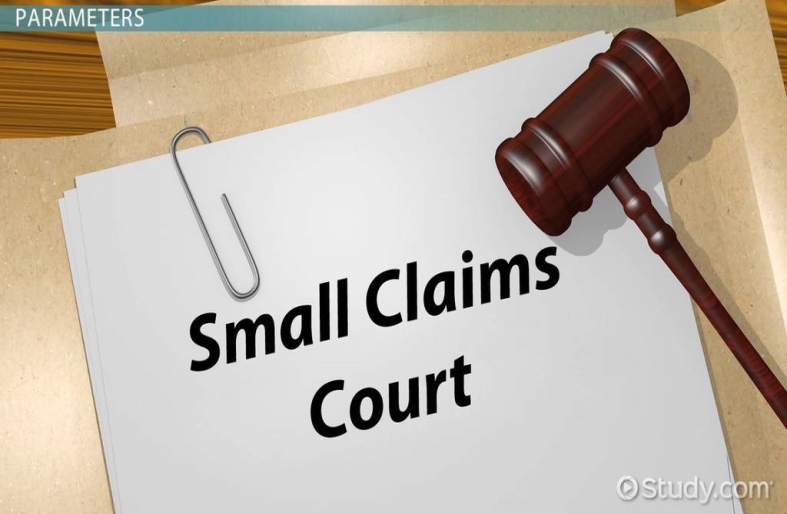Just because you’re in small claims court doesn’t mean you don’t need to know anything about laws or rules regarding your case. In fact, it’s quite the opposite. You should know what the basis of your claim is and why you’re taking another party to court. Are they liable or responsible in your lawsuit? What are the laws governing your claim? There’s a number of questions that may need to be answered and if you’re not equipped to answer them, professionals may just be needed.
Some may be persuaded to think that all you need to know is that you should be able to describe the nature of your legal dispute; gather evidence and/or witnesses; and allow the judge to determine if you have a case or not.
When you have a basic case, this advice may be sufficient. You can put in minimal and trust the court to handle the legal details. The issue with this strategy is that the court will not determine your case solely on what seems to be ethically “correct” or who had the better presentation. The judge must abide by the same laws as if it were being tried in a traditional courtroom.
We have compiled some of the most frequent legal items in small claims court disputes, along with what needs to be done to help prove each one. If you should choose to file suit, you should examine whether the circumstances of your case meet the criteria to do so. Just because you have been injured by another person, it doesn’t entitle you to a court judgement necessarily. There must be laws to back up your claim that you were injured by someone else’s unlawful conduct.
However, be aware that some states have different laws governing various legal disputes. Contact a lawyer in the state where the dispute has taken place. Maybe you need an NYC Lawyer or a Paterson NJ Lawyer? Make sure to retain the services of a legal professional if you plan to take your cases seriously.
Bad Debt. This is a specific kind of contract case. To win a case like this, you have to prove that there is a debt, what is still owed, and when the payment was due to be paid, and if it’s still outstanding.
Contract Breach. The person you’re suing has violated the conditions of a legal contract (written, oral, or implicit). And because of this, you have experienced a financial loss.
Warranty Breach. A merchant’s written or implied guarantee (warranty) to you has been violated, and you have incurred a monetary financial loss. One example of this could be that your newly purchased vehicle develops mechanical issues while still under warranty.
Security Deposit Not Returned. Another kind of contract dispute that occurs often between renters and landlords. You must show that you paid a deposit, that it was not returned (or even partly returned), and that you left the premises both clean and undamaged. This entitles you to your entire deposit or at the very least some.
Defamation. To establish a defamation lawsuit, you must demonstrate that the other person said or published false statements about you or your company and that it harmed your reputation. If you’re a celebrity, you show that someone has defamed you and were aware that what they said was untrue or with “reckless contempt for the truth.” In a lot of states, it is illegal to sue for defamation in small claims court. Even in places where a defamation lawsuit may be brought in small claims court, judges generally don’t take the cases very seriously since it generally doesn’t do significant harm.
Personal Injury. This refers to one being injured as a result of another person’s negligence or deliberately.
Product Liability means a product maker has legal responsibility. A faulty product caused you or your property harm. If this is the case, you may be eligible for compensation under the legal concept of liability, which makes the maker of the product liable for your losses without requiring you to show fault.

